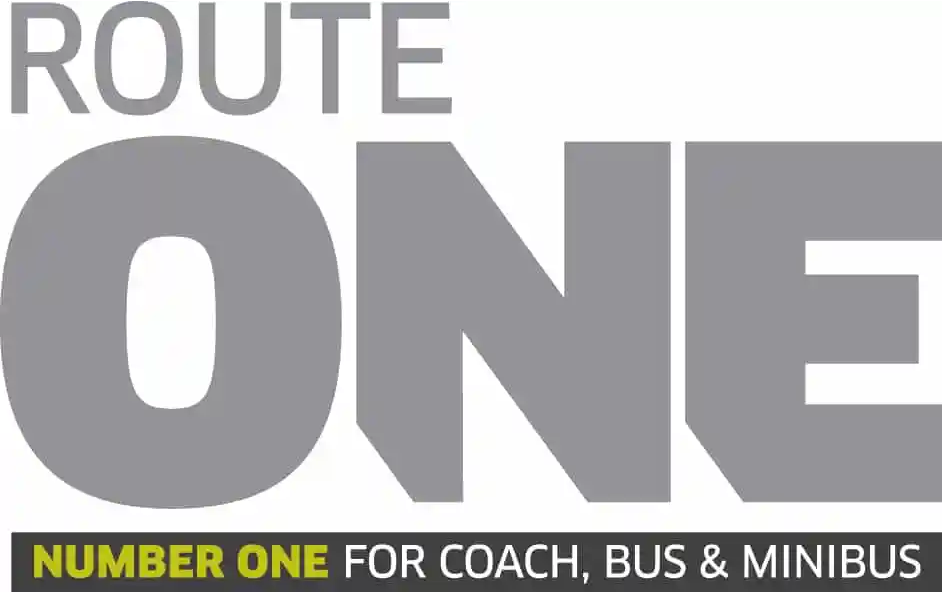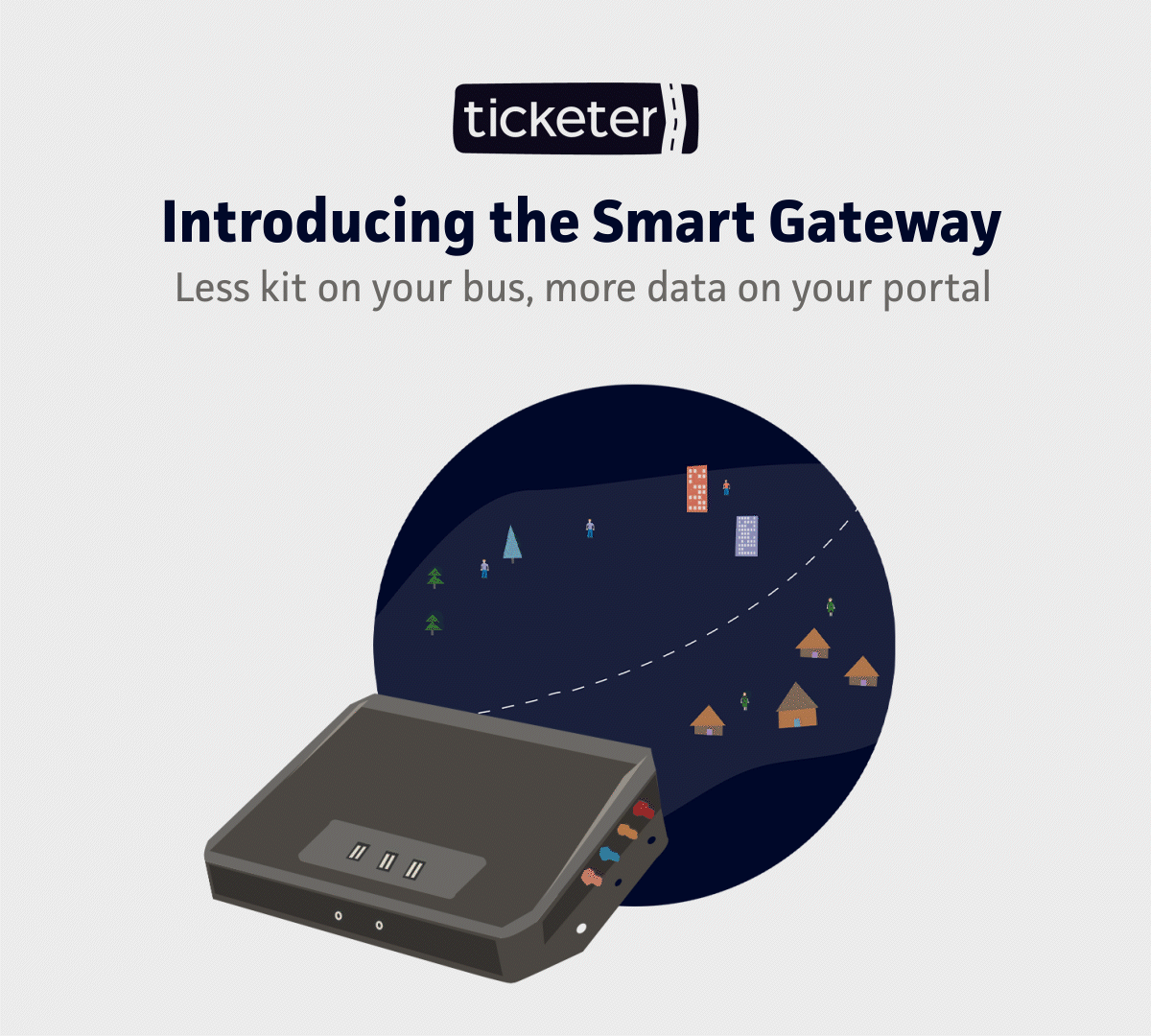 We recently sat down with RouteOne to discuss our latest product the Ticketer Smart Gateway; the foundation of our ‘Connected Bus’ concept. You can read the full article as featured in their November magazine below.
We recently sat down with RouteOne to discuss our latest product the Ticketer Smart Gateway; the foundation of our ‘Connected Bus’ concept. You can read the full article as featured in their November magazine below.
Innovative functionality helps enhance the passenger experience, and better connectivity between hardware devices creates a more effective technology platform.
Ticketer’s latest initiative – its drive for the ‘Connected Bus’ – has these principles at its core, enabled through the Ticketer on-bus Smart Gateway, a platform for connecting systems from third-party suppliers together to create a cohesive and smarter ‘whole’.
Enabled by the ITxPT standard, well proven on mainland Europe, the concept enables Ticketer’s operator partners to reduce the amount of hardware needed on board, provides a single view to ensure said hardware is working correctly, and unlocks access to more third-party functionality through integrated data.
 “We’ve already seen systems on the bus connected up to each other,” explains Director of Product Strategy and Customer Success, Bradley Todd. “But what we’re doing with the Connected Bus vision is taking that further, turning it into a much broader ecosystem of different expertise and specialised systems. We’re bringing them together to provide much more functionality for the operators and passengers, having different types of equipment and profiles connected together and sharing data with each other.”
“We’ve already seen systems on the bus connected up to each other,” explains Director of Product Strategy and Customer Success, Bradley Todd. “But what we’re doing with the Connected Bus vision is taking that further, turning it into a much broader ecosystem of different expertise and specialised systems. We’re bringing them together to provide much more functionality for the operators and passengers, having different types of equipment and profiles connected together and sharing data with each other.”
“It is truly that the sum of the whole is greater than the individual parts.”
 The integration of data is where UK Head of Product Jason Mann sees the most potential – with the ability to do such things as overlay ticket types onto CCTV footage, augment vehicle data with the walk-round driver check list, or combine telematics and occupancy data to see the effect of passenger numbers on vehicle efficiency, to name but a few. “Each of the functions and features of each piece of hardware can now be enhanced significantly because their access to more data that we wouldn’t normally see, or that would be visible only to another system,” he says. “It is truly that the sum of the whole is greater than the individual parts.”
The integration of data is where UK Head of Product Jason Mann sees the most potential – with the ability to do such things as overlay ticket types onto CCTV footage, augment vehicle data with the walk-round driver check list, or combine telematics and occupancy data to see the effect of passenger numbers on vehicle efficiency, to name but a few. “Each of the functions and features of each piece of hardware can now be enhanced significantly because their access to more data that we wouldn’t normally see, or that would be visible only to another system,” he says. “It is truly that the sum of the whole is greater than the individual parts.”
 The concept is a natural evolution from the development of Ticketer’s solutions in connecting ticket machines to various other systems on board – as well as building relationships with third party suppliers – recognising that when systems communicate, the platform becomes more effective. One example of that working well has been sharing of Passenger Occupancy data to the driver, who needed that data to ensure the safety of passengers during COVID, when passenger numbers were limited. This was a critical moment, as previously siloed Passenger Occupancy systems did not share that data with other onboard functions. In the future, this occupancy data could be used to discover over-riders, informing where ticket inspections need to take place and reducing fraud.
The concept is a natural evolution from the development of Ticketer’s solutions in connecting ticket machines to various other systems on board – as well as building relationships with third party suppliers – recognising that when systems communicate, the platform becomes more effective. One example of that working well has been sharing of Passenger Occupancy data to the driver, who needed that data to ensure the safety of passengers during COVID, when passenger numbers were limited. This was a critical moment, as previously siloed Passenger Occupancy systems did not share that data with other onboard functions. In the future, this occupancy data could be used to discover over-riders, informing where ticket inspections need to take place and reducing fraud.
Jason argues that augmentation of data is only set to become more useful as electric vehicles grow in prevalence, and operators need to factor more data into charging and planning schedules and duties.
“This for me all makes enormous sense – better functionality, better data, and it’s easier to deploy for all our customers and supplier partners. It is future-proofing the bus.”
In one example, he points to how occupancy will have a bearing on battery drain. “Knowing that additional data point will give a feel for what is causing it,” he says. “Weather, heating – all these will factor into operators’ plans, and having that wider dataset will become more relevant and useful.”
Critically, the Smart Gateway and Connected Bus concept is an enabler for Ticketer and its customers, with any number of possibilities as more data sets become available – and, through its subscription model, Ticketer opens the opportunity for the smaller operator to get that value too. The system requires no back-office infrastructure, and is hosted centrally by Ticketer as an extension of what operators already use.
 “For me, this is an enabler that gives phenomenal functionality on bus,” says Ticketer’s Founder John Clarfelt, who argues this is the natural second generation of the business. “This for me all makes enormous sense – better functionality, better data, and it’s easier to deploy for all our customers and supplier partners. It is future-proofing the bus.”
“For me, this is an enabler that gives phenomenal functionality on bus,” says Ticketer’s Founder John Clarfelt, who argues this is the natural second generation of the business. “This for me all makes enormous sense – better functionality, better data, and it’s easier to deploy for all our customers and supplier partners. It is future-proofing the bus.”

